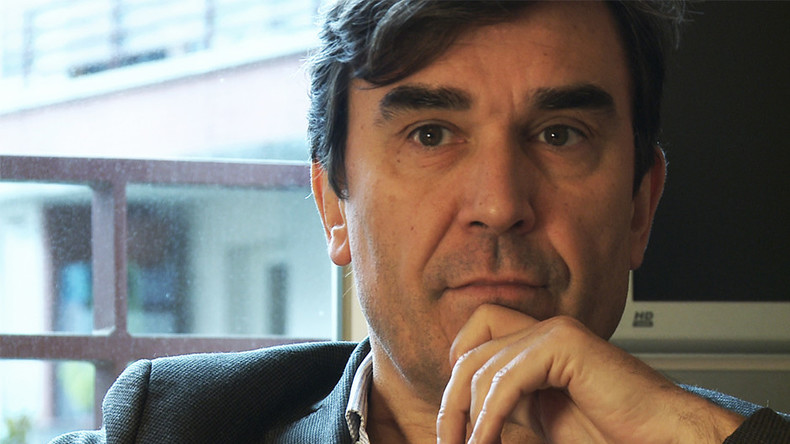By: George Malbrunot
Few people took notice of this development, despite its paramount importance for the future of Iraq.
On Friday, December 15th, the representative of Grand Ayatollah Ali al-Sistani in Kerbala turned down requests by Iraqi Sunni and Kurdish leaders and foreign officials to disband the Shiite paramilitary groups that participated in the war against the Islamic State of Iraq and Syria (ISIS).
Instead, Sisitani’s representative called for incorporating these groups into state security agencies.
In this, Sistani strikes a concordant note with Iraqi Prime Minister Haider al-Abadi who does not want to anger Iran and its allies in Iraq by keeping these paramilitary groups, which are controlled by Tehran, intact.
An edict by Sistani in June 2014 miraculously mobilized 60,000 Iraqis for the fight against ISIS, soon after the terrorist organization overran almost a third of Iraq’s territory and was only kilometers away from Iraqi capital, Baghdad.
The fact is that Sistani does not call for disbanding these groups, widely known as the Popular Mobilization Forces, knowing that such a call will fall into deaf ears, even if it is made by the most influential man of religion in Iraq.
The ageing cleric, who meets his followers every day at his modest home in Najaf, just meters away from the shrine of Imam Ali, is aware of the enormity of the problems Iran can cause to him. He also knows that he cannot publicly challenge the Iranians.
Nonetheless, like Abadi, Sistani knows that the presence of these Shiite militias will be a major stumbling block on the way of harmonizing Iraq’s different sects.
The Shiite paramilitary groups, which were accused of committing crimes against Sunnis in villages liberated from ISIS occupation, remain to be a flagrant example of Iranian influence outside the national borders of the Islamic Republic.
These militias usually depend on local fighters and – like in the case of Hezbollah in Lebanon – they are sometimes more powerful than their countries’ national armies. Iraq’s two main militias, namely Bard Organization and the League of Righteous People, are predominantly pro-Iran.
Can French President Emmanuel Macron’s calls for disbanding these militias, even if gradually, be heard? According to Iraqis – Sunnis and Kurds alike – this will be next to impossible.
The militias were formed by a law passed by the Iraqi parliament in November 2016. This law was passed before the battle for the liberation of Mosul from ISIS control started.
The law is, however, inaccurate and the way it is phrased opens the door for different interpretations. It allows paramilitary groups to be incorporated into state security bodies. It, at the same time, recognizes these groups as independent entities that can make deals.
In the last few days, a number of Iraq’s pro-Iran militias said their members planned to join state security agencies under Abadi’s leadership. This will give the same militias the right to field candidates in the next Iraqi parliamentary elections in May. The elections will be decisive for the future of Iraq.
A majority of seats won by these militias and their main ally, former Iraqi prime minister Nouri al-Maliki, will pose a major danger to Abadi, one that can herald his defeat. This can land Iraq in an endless cycle of sectarianism.
All hopes are pinned now on maneuvers being made in Baghdad, even as nobody knows who will emerge victorious at the end.





































admin in: How the Muslim Brotherhood betrayed Saudi Arabia?
Great article with insight ...
https://www.viagrapascherfr.com/achat-sildenafil-pfizer-tarif/ in: Cross-region cooperation between anti-terrorism agencies needed
Hello there, just became aware of your blog through Google, and found ...